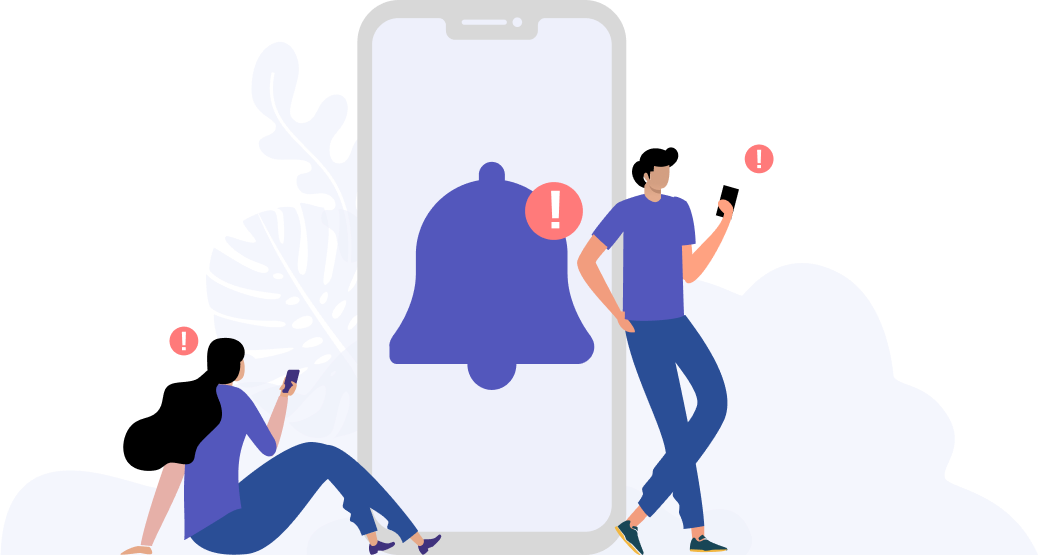How do I know if I’m addicted to my phone? And what can I do about it?

Since their conception in the early 2000s, smartphones have developed an increasingly negative reputation for being addictive in some people’s minds.
This is because, like any drug or gambling addiction, smartphones provide a quick escape from reality. At the click of a button, you can transport from your living room into a world of online shopping, video games, endless TV, social “connection” and much, much more. It’s no surprise that in recent years, even the World Health Organisation has released screen time guidelines for children to try to manage the rising time that children are spending on their digital devices.
You may have heard the phrase “smartphone addiction” thrown around in media articles or down the grapevine, stories about kids being sent to “techno-rehab” after spending 12+ hours a day on their phone.
Twelve hours sounds like a lot, huh? Well, turns out, it’s not as outrageous as you might think. In 2017, researchers at Ernst and Young polled 1,000 Singaporeans between the ages of 18 and 69. Turns out, the average Singaporean spends 12 hours and 42 minutes on their screens every day. And, despite such a high average, only one third of the respondents admitted they were addicted to their screens.
With this in mind, how much is too much screen-time? And, at what point does normal usage become addiction?
How to tell if you’re addicted to your smart devices.
One way to assess your relationship with technology is to check how many hours you are spending on your device in a day. You can track screen usage through an app like planoApp or in the “screen-time” settings on your smart device.
It can also help to look out for other more subtle signs of screen-dependency, which include:
– Constantly checking your phone for no reason
– Feeling anxious when you don’t have your phone next to you
– Waking up in the middle of the night to check your phone
– Taking your phone into the bathroom
– Avoiding social interaction in favour of spending time on your phone
If you frequently do any of the above behaviours, then it’s worth taking some time to re-evaluate your relationship with technology.
Here are a few ways to get started.

3 ways to overcome your device-dependency
Choose your words wisely
Language is powerful in its ability to influence the way we think. Studies have shown that using declarative words like “don’t” instead of limiting words like “can’t” can improve the chances of succeeding at changing habits.
Instead of saying; “I can’t go on my phone”, try using a more assertive statement like; “I don’t use my phone very often”.
One simple word change can give a whole new perspective on the issue, and make you feel like you are taking control of your relationship with technology (not the other way around).
Tap out of the lucid loop
Smart devices are designed to capture our attention for as long as possible. Ever done a “quick” phone check only to find yourself an hour later scrolling through an endless stream of cute cat videos on TikTok.
Researchers call this phenomenon a “lucid loop”; Adam Alter, author of Irresistible: The Rise of Addictive Technology and the Business of Keeping Us Hooked explains;
The “ludic loop” is this idea that when you’re engaged in an addictive experience, like playing slot machines, you get into this lulled state of tranquility where you just keep doing the thing over and over again. It just becomes the comfortable state for you. You don’t stop until you’re shaken out of that state by something.
Unfortunately, you can’t escape the lucid loop on your own, but you can prevent yourself from slipping into it. Before responding to that text message that just came through, set an alarm to switch off your device in ten minutes’ time to enjoy that quality family time to the fullest.
Swap it, don’t stop it
What’s important to remember about smart devices is that thinking of using them for only a short time may slowly creep up to become hours on end. Using your smartphone less will open up so much time to do other fun things like reading books, going for walks in nature, spending time with your family and more.

To help boost positivity and give an incentive to change your smartphone habits, write out a list of all the activities you can do with your new spare time. This way, you aren’t cutting something out of your life, but simply replacing it with other fun, device-free activities!
Small steps go a long way.
Changing habits can be hard, in fact research shows it takes an average of 66 days to build a new one. Start slow and go at your own pace, this process is by no means a race. If you begin by cutting five minutes here and there, you’ll soon find that you become less and less dependent on your devices.
Tools Designed for Healthier Eyes
Explore our specifically designed products and services backed by eye health professionals to help keep your children safe online and their eyes healthy.





